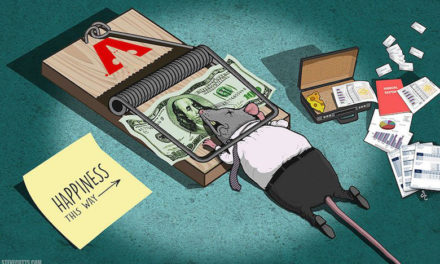Written by economist Károly Lóránt.
Sukoró, where I live, is not a cosmopolitan city, here people greet each other when they meet on the street, which mostly happens during walks, when - especially the older generation - goes on a health walk, combined with a dog walk for the more upscale. to avoid, which usually revolves around the weather, or about the intelligence of animals, especially dogs.
Although I only have one cat, Cicmic, who joined me years ago from a neighbor, I can also talk about dog topics because of my avid reading of Csányi's books.
This is how it happened the other day that we started a conversation with a street dog owner. The gentleman, who is about the same age as me, after we discussed things about dogs and cats, wanted to raise the conversation to a higher level and said "they steal". I was surprised at this turn of the conversation, but after some thought I replied that they had stolen and would steal. After exhausting all the tenses of the third-person plural conjugation of the verb "to steal" in this way, we mutually realized that it is better to stay in the world of dogs and cats.
However, the case made me wonder what motivates individual people when deciding between political parties. According to the old English joke, when John Smith was asked why he voted for the Labor Party, he replied that it was because his father and grandfather had already voted for it and he was a traditional conservative. There is no doubt that family traditions and the environment we were born into matter. But that seems to be loosening up now.
The younger generation is much more inclined to accept the extreme liberal, individualistic view, according to which only you are important, you have one life, do what you want with it, and that there is no such thing as a common interest, society, or society. The word "home" or "heimat" in German, as well as its associated meaning, and with it the nation-state, have been put on the forbidden list, and the youth tend to accept this ideology, which is of course encouraged by their environment.
When I lived in Brussels, a Hungarian family working for a multinational company invited me to lunch. They were at the same company, but already in a third country, their children spoke English to each other, obviously they went to English schools everywhere. What does the concept of "home" mean to them? Maybe something like "go home" after school.
I was a student in the cursed Rákosi communist system, but "socialist patriotism" existed there too, I studied poems such as Petőfi's poem A magyar nép, which ends like this child, and if death overtakes him in battle, the man utters these two words for the second time!" And we practiced this in 1956. I don't know if a young person born after 2000 can understand what an intoxicating feeling it was when for ten days we thought we would be free: free, independent, neutral Hungary! And many sacrificed their lives for it.
Returning to the theft, for me, who dealt with national affairs at my main job, it means nothing, because if we take it that way, the whole privatization was theft, and it's even better if something was stolen, because at least it remained, compared to the destroyed companies, the one and a half million lost jobs . Of course, nobody likes it - not even me - when the new owners defiantly show off their wealth, replace their old wives or live a debauched life.
And of course there are many issues in which the government can be legitimately criticized. For me, this is, for example, the flat rate income tax, because I think they gave HUF 600 billion a year to the rich completely unnecessarily, it should have been spent on healthcare and education.
But in contrast to this, Fidesz, which came to power in 2010, pulled the country out of the debt trap into which the Gyurcsány government and its predecessors led it, with a bitter struggle against the international financial world. He was able to save the foreign currency debtors, or at least a significant part of them, from the most desperate situation, employment was again raised to the level of the times before the regime change, economic growth started, and the country's external and internal balance was consolidated.
And this is true even if balance problems may appear as a result of Covid-19 and inflation is also accelerating. But what I consider to be the most positive from an economic policy point of view is that the government is trying to get back into national hands the companies of national economic importance that were previously irresponsibly privatized to foreigners.
And there are issues in which I clearly support the government's policy, such as the issue of immigration. Western Europe is essentially lost from this point of view, let me quote the most competent person on this issue, Angela Merkel, from 2010: "We fooled ourselves for a while that they would not stay, but that did not happen... then we started saying that we should adopt a multicultural concept , and let's live happily next to each other and be happy that we live with each other. But that perception has failed, and failed completely” (source: The Guardian, 17 October 2010).
Hungary and, in this context, Viktor Orbán, have come under an incredible number of attacks because of the fence, which now enjoys EU support in the case of Lithuania. What if we did what the Danes are trying to resettle asylum seekers in Uganda? Eventually, every elected government, right or left, realizes that multiculturalism doesn't work and is forced to pursue policies accordingly. Only the international "elite" that does not belong anywhere and the money capital behind it advocates immigration through its press and "civil" organizations, but Marx already said that capital has no homeland. If I didn't agree with anything the government was doing, except for the immigration policy, I would still support the government, because - as historical examples prove - the ownership of national assets can be rearranged over time, but the situation created by immigration is irreversible.
A similar example is the opposition to the philosophy of eliminating traditional cultural values from György Lukács through Theodor Adorno and other representatives of the Frankfurt School to Karl Popper, which at this moment means the fight against gender ideology.
The mentioned examples prove that today the fight is not between the right and the left and it is not between right or left parties or politics, but between the retention of the nation-state, the "homeland", or its liquidation. The youngest voters perceive this little, so we have to win over the older ones, including those who classify themselves on the left.
At the beginning of the 2000s, I conducted a survey among NGOs about what kind of Europe we want, one of the questions was whether we should be a United States of Europe or a cooperation of nation states. Eighty percent of respondents voted for the latter (by the way, the ratio is similar at the European level). The Münnich Ferenc (later Május 1) company, the most left-wing representative of civil organizations, was 100 percent in favor of nation-state cooperation.
The success of next year's election will primarily depend on the extent to which the government's propaganda is able to win over the electorate with left-wing sentiments, but at the same time those who are attached to their country.
Károly Lóránt
(The author is an economist. Cover image: Magyar Hírlap)












